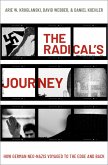How could the Holocaust have happened? How can people do such things to other people? Questions such as these have animated discussion of the Holocaust from our earliest awareness of what had happened. These questions have engaged the lay public as well as academics from many different fields. Psychologists have taken an active role in trying to understand and explain the motivation, thinking, and behavior of all those involved in and affected by the Holocaust. The present volume is, in part, an attempt to provide a kind of historical roadmap to the diverse psychological explanations and interpretations that have been developed by psychologists over the last several decades. While many psychological discussions of the Holocaust dismiss or diminish the significance of work that antedates the Milgram obedience experiments in the early 1960s, this book engages some of these earlier formulations in detail. It strives to be, in this sense, a more complete history of psychological thought on the Holocaust. As many psychologists now accept the idea that a comprehensive psychology of the Holocaust must include more than social influence, the book addresses the question, "What, then?" The answer can be found by looking both backward and forward in time. Gordon Allport's 1954 book The Nature of Prejudice remains one of the best psychological attempts to grapple with the Holocaust written, though that was not its primary purpose. In this volume, the reader will find both echoes of Allport and new ideas for ways psychologists can engage this profoundly important subject.
Dieser Download kann aus rechtlichen Gründen nur mit Rechnungsadresse in A, B, BG, CY, CZ, D, DK, EW, E, FIN, F, GR, HR, H, IRL, I, LT, L, LR, M, NL, PL, P, R, S, SLO, SK ausgeliefert werden.









